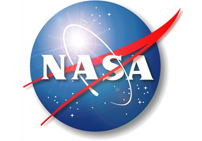NASA Advisory Recommendations and NASA Response
 NASA Response to NASA Advisory Council Recommendations from April 2013 (Includes PDF), NASA
NASA Response to NASA Advisory Council Recommendations from April 2013 (Includes PDF), NASA
“Dear. Sr. Squyres:
Enclosed are NASA’s responses to the nine recommendations from the NASA Advisory Council meeting held April 24-25, 2013, at NASA Headquarters. Please do not hesitate to contact me if the Council would like further background on the responses. I appreciate the Council’s thoughtful consideration leading to the recommendations and welcome its continued findings, recommendations, and advice concerning the U.S. civil space program.
Charles F. Bolden, Jr. Administrator”
1) Demonstrate and Articulate the Justification and Strategy
for NASA’s New Asteroid Initiative
2013-01-01 (HEOC-Ol)
Recommendation: NASA should clearly demonstrate and articulate a strategy for the Agency’s new Asteroid Initiative that highlights the benefits that will be gained, making progress toward NASA goals while furthering science and technology and benefiting humankind. The Agency should clearly demonstrate how the Initiative will serve as a stepping stone to NASA’s ultimate goal of a human mission to Mars. Potential benefits include involving operations that could apply to future missions, including life support and deep space habitability, advanced propulsion, complex ground and space operations, rendezvous in new gravitational environments, and sampling of small objects.
The Agency should also demonstrate and articulate other potential benefits:
• Benefit the United States by forging new industrial capabilities and international
partnerships.
• Benefit humankind by advancing technologies and operations that might someday assist in the development ofa defense strategy for Earth-bound asteroids.
…









Just reading Item #1, I find the same minimized element as in so many NASA and NASA-related documents. The statements pertaining to benefits talk about future missions, political factors, and defense, but leave out, or at best minimize, the benefits to the commercial and industrial sectors, which have always been part of NASA’s mandate, as was the case with NACA before it.
The phrase, “and commercial applications” is tacked onto the end of a couple of sentences in full PDF report, but with no elaboration. I have always felt strongly that the (immediate and eventual) commercial and industrial applications of the knowledge, processes and equipment developed for/by the space program are the most important and far-reaching benefits, and in addition are the benefits most closely tied to the taxpayers of the space nations, the people whose money and opinions (in theory) make or break any national space program.
In the long run, it’s the working people, not the government, who will benefit most from what we learn and accomplish in space, seamlessly including new science, technology and resources into our daily business activities in the same manner as new Earthbound resources and knowledge have been incorporated in the past. As with transportation, communication, power generation, and so many other essential industries, those industries that will incorporate space and space resources will (hopefully) get their kick start and initial operation through government and/or government-sponsored programs and then the commercial and industrial players will take over the day-to-day operations and growth, for the benefit of the companies involved and the populations affected.
A little more longer-term thinking may well appeal more to the common people, whose taxes pay for government salaries and programs. It may even help to dispel some of the despair that people generally have come to feel towards their various governments’ apparent detachment from their constituents’ best interests.
One final comment: stating Mars as “NASA’s ultimate goal” I think is a big mistake, since it is well recognized that this is not a unanimous opinion. Sentences like this should be left as open as reasonably possible so as not to alienate people who would otherwise be on board with the rest of the content.